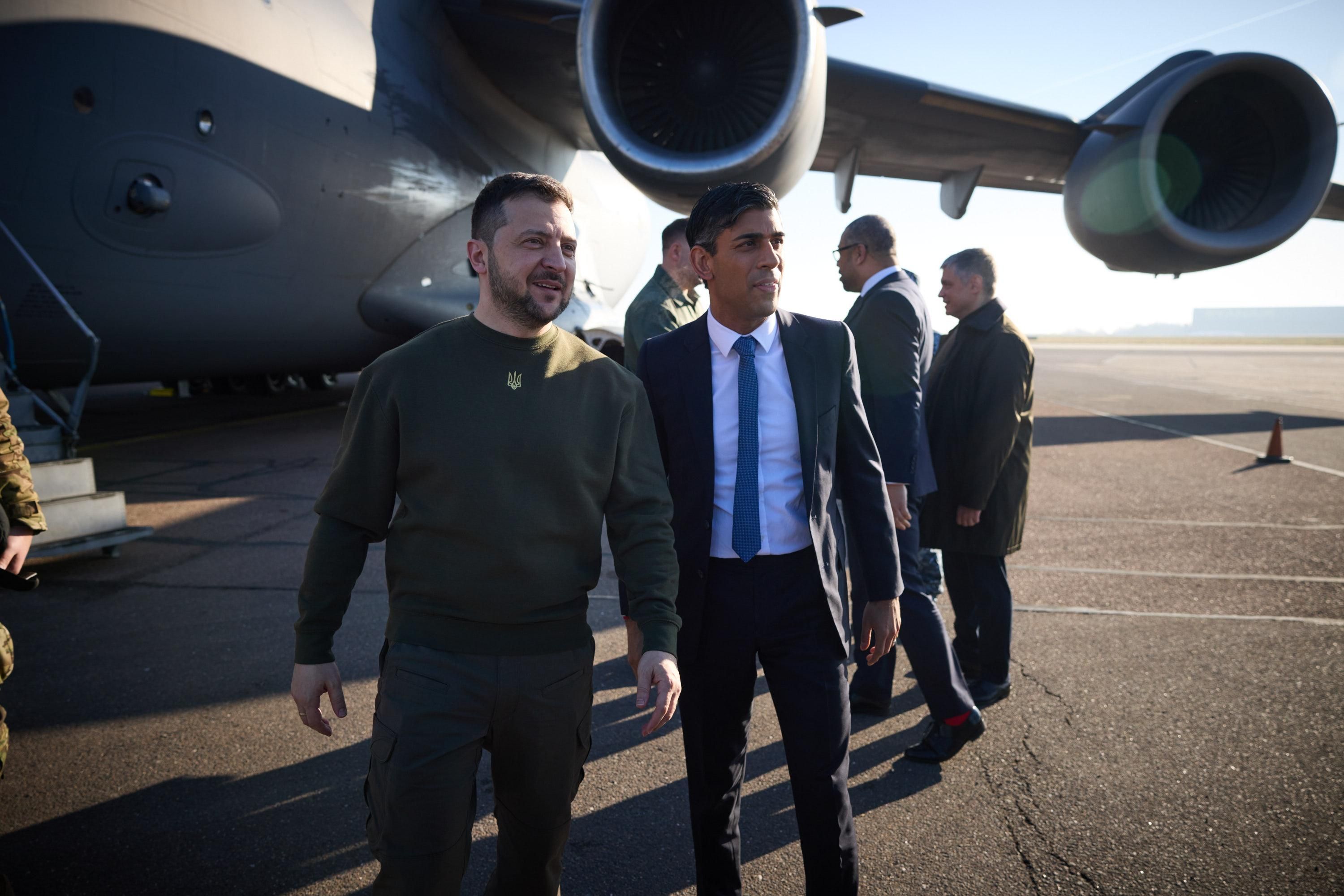What We’re Watching: Zelensky and the jets, Pakistan targets TTP militants
Zelensky to British lawmakers: “Give us wings”
President Volodymyr Zelensky embarked on a whirlwind tour on Wednesday, leaving Ukraine for just the second time since Russia’s war began almost a year ago. Making a surprise stop in the UK, Zelensky met with PM Rishi Sunak and King Charles III and charmed British lawmakers at an address in the House of Commons. While the build-up to the trip was shrouded in secrecy, Zelensky was upfront about why he was there, imploring parliament to send Ukraine fighter jets: “We have freedom. Give us wings to protect it,” he said. Some analysts have suggested that Zelensky is moving too fast and isn’t reading the room properly: After all, it was just a few weeks ago that western countries finally agreed to send him battle tanks, and that came only after months of handwringing and negotiations. Sunak, for his part, said he is still considering the request but confirmed that the UK will help train Ukrainian pilots to use NATO-standard jets. Zelensky then headed to Paris, where he made a similar plea to President Emmanuel Macron and German Chancellor Olaf Scholz, followed by a stop in Brussels where he addressed the European Parliament. Crucially, the US has not committed to sending fighter jets, and given that Washington and Brussels have been in lockstep on supporting Ukraine, this might determine how the Europeans respond for now. Indeed, Poland, one of Ukraine's strongest allies, said it would only move on the request "within the entire formation of NATO."
Pakistan vs. its homegrown Taliban
On Wednesday, Pakistani security forces launched an early morning raid on a suspected terrorist hideout that killed 12 Pakistani Taliban insurgents. This is the latest deadly violence in an ongoing firefight between the Pakistani security services and the homegrown jihadis of Tehreek-e-Taliban Pakistan, a militant group allied with, but separate from, Afghanistan’s Taliban. Since the US-led NATO withdrawal from Afghanistan in August 2021, the reestablishment of Taliban rule there has given new life to their allies inside Pakistan, who have demanded stricter enforcement of Islamic law and a reduced Pakistani military presence in the border region the group uses to trade and travel between the two countries. After 15 years of insurgency, the TTP and the government reached a ceasefire agreement. That deal broke down last November as militants resumed attacks on Pakistani soldiers and police. Then last week, Pakistani officials blamed the TTP for a suicide bombing at a mosque that killed more than 100 people, and this raid is the first major security response. The TTP denies involvement in the mosque bombing.
